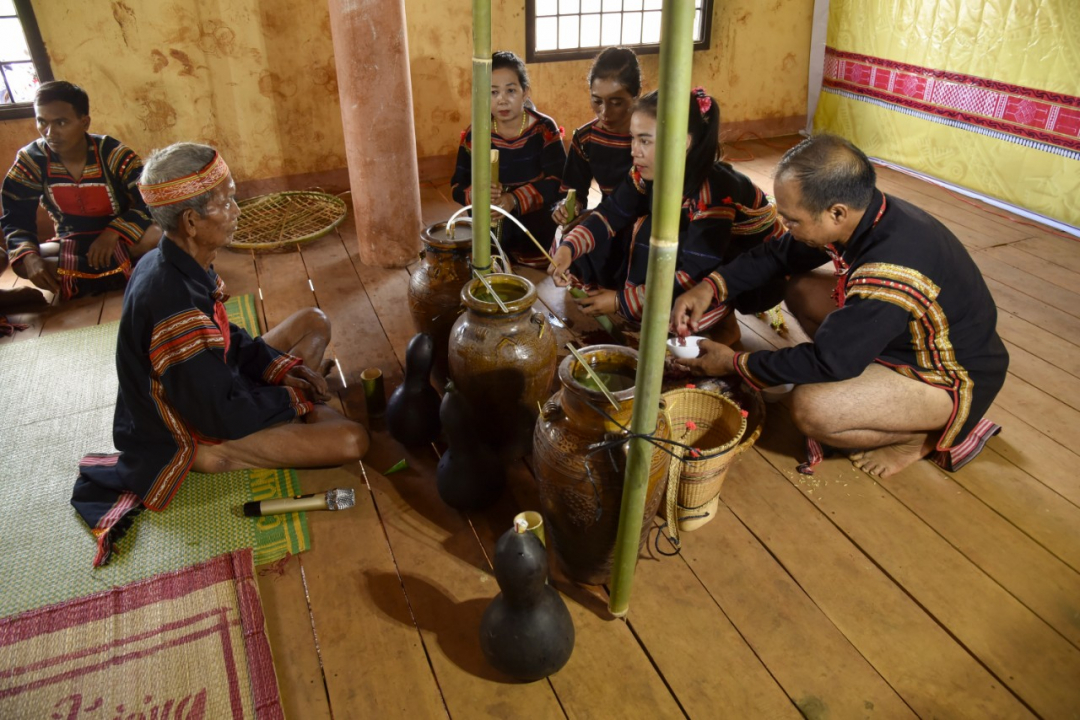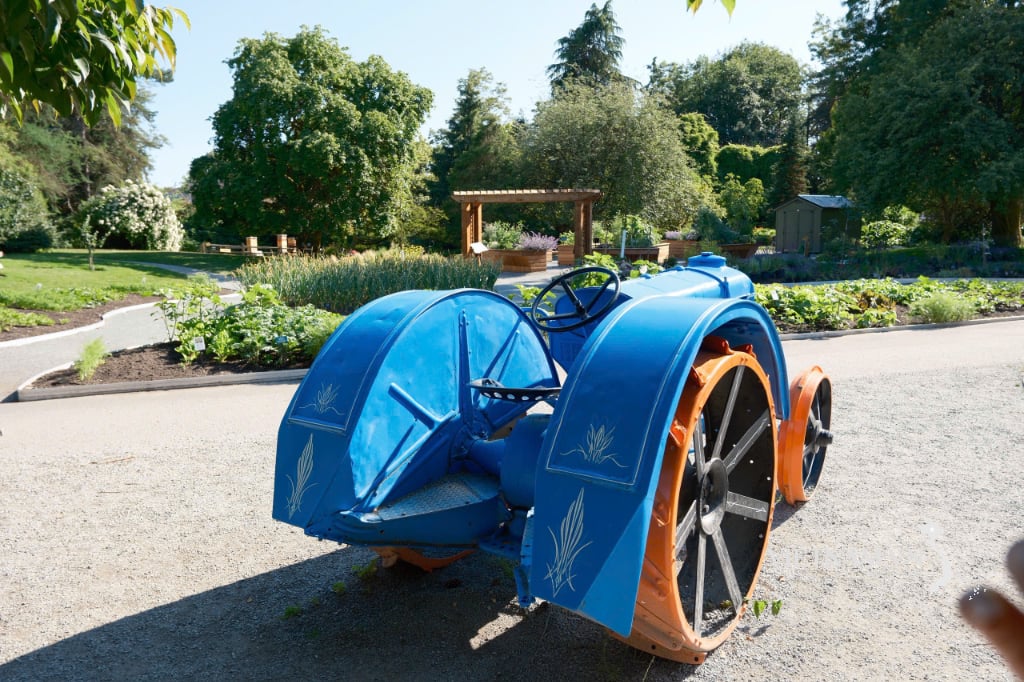14:31, 04/09/2023
While the Kinh people consider "betel nut as the beginning of a conversation," the ethnic minorities of the Central Highlands believe that rice wine is indispensable when entertaining guests and friends.
In the Central Highlands, as children grow up, they simultaneously learn to drink rice wine and practice traditional dances (xoang), playing traditional musical instruments such as gongs, T'rưng, goong, t'ní, k'lôngbut, ding tuk, and ding yơng… While musical instruments are categorized by gender, rice wine is not. Rice wine is found in homes, in field huts, and even stored in warehouses in the forest. It participates in all community activities, big and small, from lively and boisterous festivals to intimate conversations between a few people sharing joys and sorrows. For the community, the absence of rice wine means the absence of a festival or any form of public activity. For individuals and families, the absence of rice wine means the absence of soul in their conversations, both personal and business-related.
The people of the Central Highlands generally respect traditional customs. In the unwritten customs of the M'nong, J'rai, and Bahnar people, those who get drunk and cause trouble are severely punished. Those who get drunk and fall asleep without causing trouble are considered to be being lulled to sleep by the spirit of the rice wine jar, inviting them to wander in the forest. Rice wine doesn't discriminate between rich and poor. It's found in both the homes of the wealthy and powerful as well as the impoverished. A simple basket of cassava is enough to make a jar of delicious rice wine.
 |
| Rice wine has always been a part of the lives of the ethnic minorities in the Central Highlands. Photo: Huu Hung |
The rules of drinking rice wine are both simple and not simple at the same time. Even with a small jar of wine, shared by a few people, the owner of the jar must offer prayers and incantations to the spirits before drinking. At large gatherings, the first drinker must be the village elder, followed by other elders in the council of elders, then guests and dignitaries, and finally the entire community. The people of the Central Highlands follow polytheism. They believe that everything around us has two parts: the physical body and the soul. The soul is invisible, so it must be worshipped and collectively called Yang (some scholars translate Yang as deity, others as Heaven or God, while I translate it as Soul). The soul of the mountains. The soul of the rivers. The soul of the water. The soul of the trees. The soul of the rocks. The spirit of the wine jar… The people believe that after death, “the soul” still lingers somewhere, needing to eat and drink like the living, until the funeral ceremony (pơthi), the ceremony to send the Pơtâu soul (ghost) to the afterlife . That place is also on this earth, but very far away, at the end of the forest and mountains, where everything is the opposite of ours: day is night, fullness is hunger, happiness is suffering, life is death, sadness is joy…
Rice wine is made from rice, cassava, ripe bananas, jackfruit, millet, corn, etc. The yeast for rice wine is made from galangal, chili peppers, and some forest roots and leaves. The process is both simple and elaborate, not much different from the fermentation process of the Kinh people, except that after fermentation, it is mixed with rice husks (to prevent clogging when using a drinking straw). Then it is put into a jar, sealed with banana leaves, and after about 10 days, the wine is fermented. Once it is taken out, spring water is added, and it is ready to drink. The taste of rice wine is sweet, spicy, sour, and slightly bitter. The quality of the wine depends on the skill of the maker, the ingredients, and most importantly, the experience of the person making it.
I have had the opportunity to drink rice wine with the people of the Central Highlands many times. I remember nights spent in the field huts, watching out for wild animals, listening to the folk singers sing all night long by the campfire. The stories of Dam Yong and Dam Di, of the Yoong Yu brothers who trampled mountains, ran across sacred waters, and rode on clouds and wind to fight bandits and rescue the beautiful H'Bia, were told with great fanfare. Rice wine overflowed from the communal house onto the village square, and people from the surrounding area came to drink and celebrate the victory.
I've also gotten completely drunk many times because of the rice wine, because of the warm hospitality of the people of the Central Highlands, and I've learned a lesson. If you get drunk, drink more; the more drunk you get, the more you drink, until the wine loses its flavor, until only a little bit of the fermented forest leaves in the stream remain. Then you'll be sober and healthy again. You know, the spirit of the wine guides you out of your drunken stupor and back to the community!
Trung Trung Dinh
Source















































































































Comment (0)